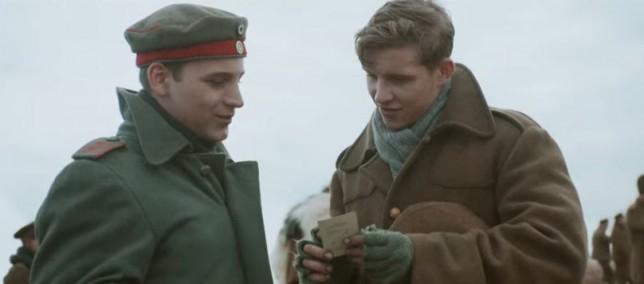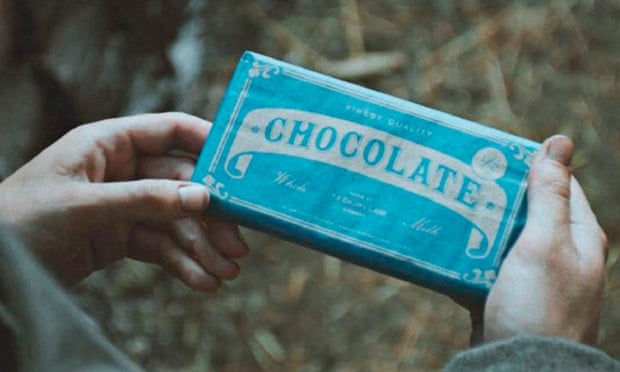It all started so well. Sainsbury's launched their 2014 Christmas TV advertisement online on 12 November, and then premiered it on ITV the following day. As we were first commenting on it, the ad was getting 150,000 hits an hour on YouTube. At the time of writing (23 November) it has been seen 11.6 million times, an average of a million views per day. Not as impressive as John Lewis's 17 million viewings, but streets ahead of all other supermarkets. Even the companion film, the making of our Christmas ad has been seen over 300,000 times.
 |
| The Sainsbury's advertisement: image from the Metro |
Sainsbury's announced the ad on their Facebook page on 12 November. The reaction was immediate, with the post clocking up nearly 8,400 'likes' to date, 888 'shares' and 631 comments from fans. Once again, though, comparisons with John Lewis put these figures into perspective: Monty the Penguin had nearly 150,000 'likes' on Facebook, 156,000 'shares' and nearly 13,000 comments.
So, what is the problem with this campaign? As we noted at the launch, choosing the subject of war for an advertisement was always going to be risky. In the initial few days the critical reaction, in the mainstream press at least, was favourable, but there was little of the viral link sharing that we had seen around the John Lewis campaign.
Part of the problem may have been popular confusion: people just did not know how to react. Most agreed that it was an emotional film with an uplifting theme. But Monty the Penguin was a compelling, emotional narrative with a happy ending.
Within a few days a muted counter-reaction started becoming evident in the press. The Guardian's Ally Fogg denounced it as "a dangerous and disrespectful masterpiece". Ellen Stweart in the Metro called it "distasteful at best and exploitative at worst". Sainsbury's were accused of hypocrisy by the Independent, the Daily Mail and the Metro.
The Guardian's tweet about Fogg's piece was retweeted 114 times and favourited 69 times. Stewart's article scored just 15 retweets and 12 favourites. So although the original Sainsbury's campaign was muted by comparison to John Lewis, the counter-reaction was fairly slow coming also.
More worrying, perhaps, was the fact that by November 16, just 3 days since the ad was first broadcast, the Advertising Standards Authority had received 240 complaints from viewers, "most citing the cynical use of 'World War One themes/imagery to promote a supermarket' as 'upsetting' and 'disrespectful'" according to Adland.
Sainsbury's itself seemed to lose interest in the possibility of the campaign going viral. Although it reminded its Facebook fans of the campaign on 18 November, there was comparatively little re-engagement, with a mere 136 likes, 3 shares and 18 comments. However, their piece on the same platform on that day about the campaign-themed chocolate bars drew 4049 likes and 513 shares. Another reference to the ad on 19 November, the last to date, scored a dismal 56 shares and 280 likes on Facebook.
Since the launch the official Facebook postings have used the hashtag #ChristmasIsForSharing just once. By contrast, a 21 November posting about range of turkeys in store had 93 shares and 3245 likes, 59 comments. Almost all postings from Sainsbury's on Facebook since 18 November have been food related.
The Sainsbury's campaign appears to have engaged on an emotional level with audiences, but that engagement has not translated itself into any of the sustained interactions with the brand that John Lewis has demonstrated. Most of us like the advertisement, we think it is worthwhile, but we don't know what to do with it. By contrast Monty the Penguin makes millions of us laugh and cry: we identify with him, and by extension with John Lewis. Most importantly we want to tell our friends and family.
